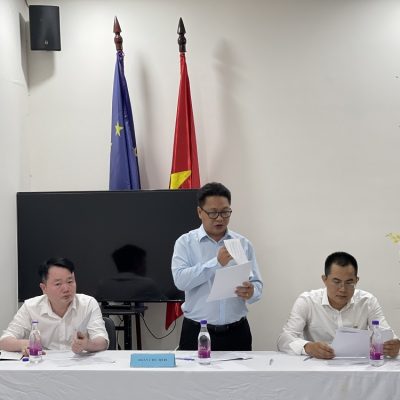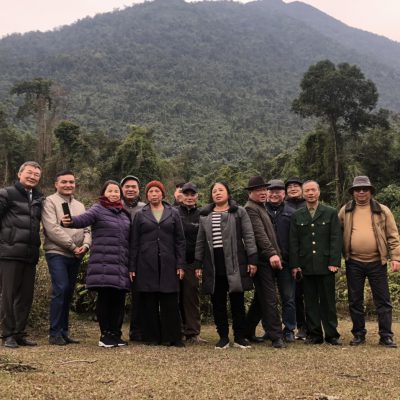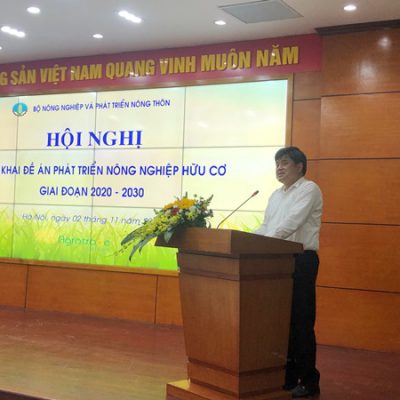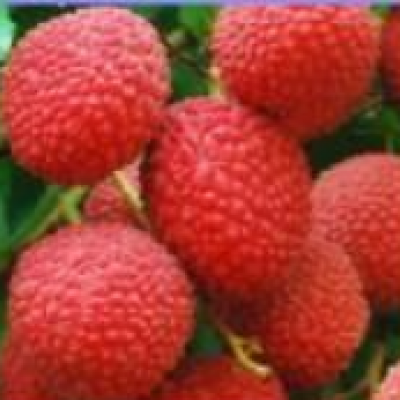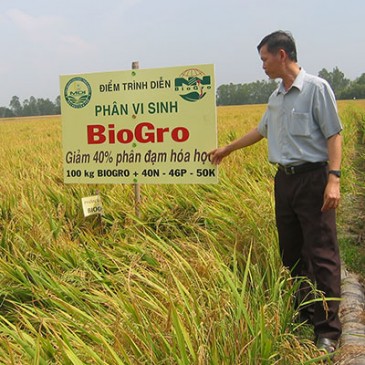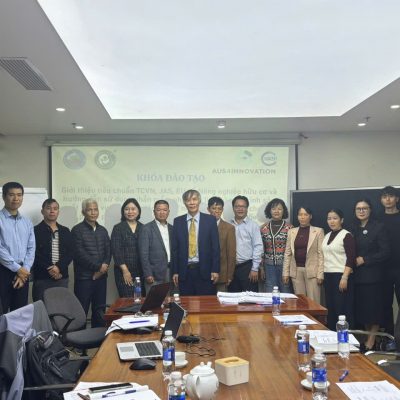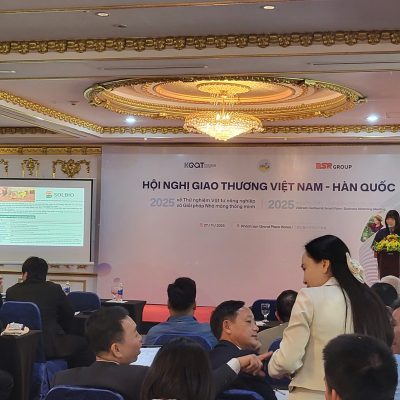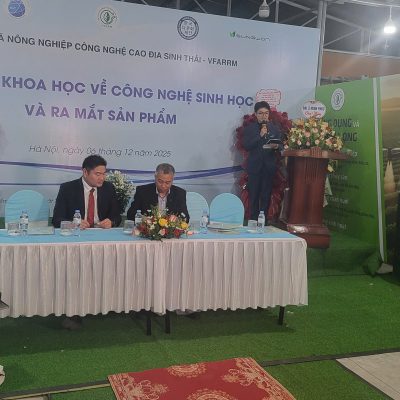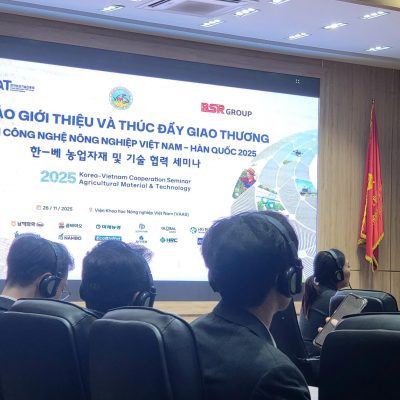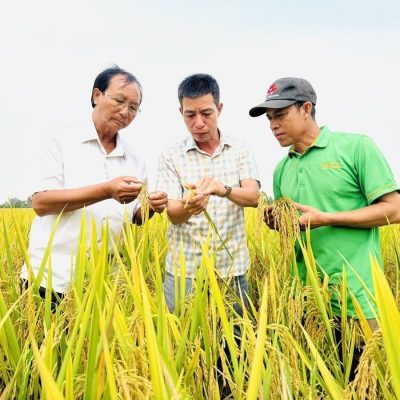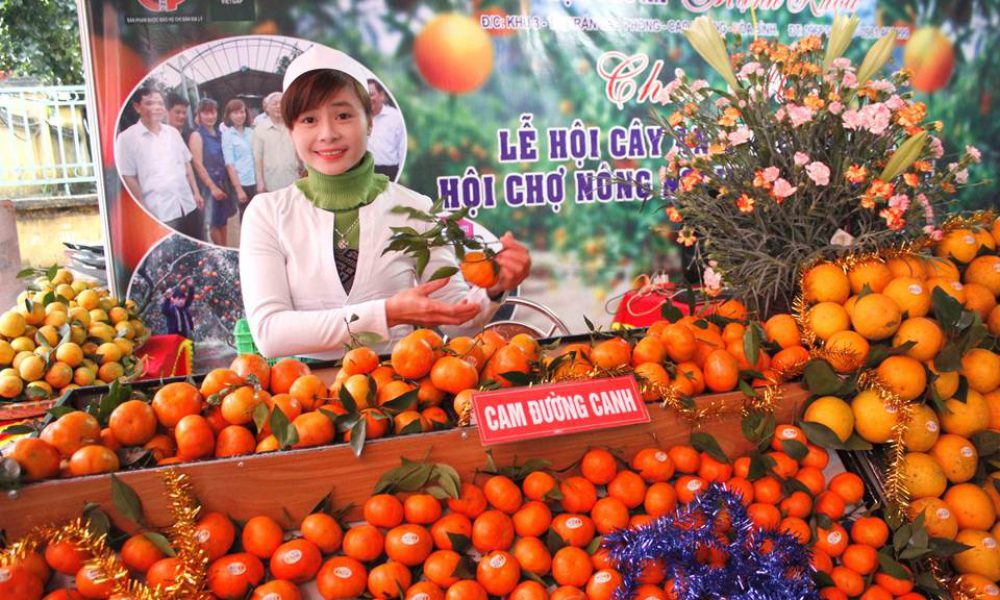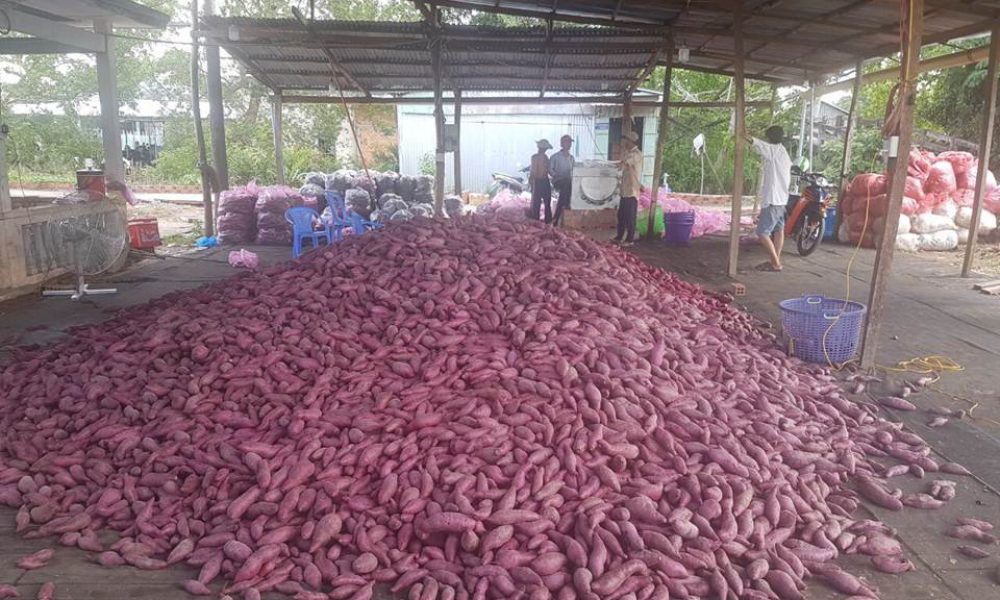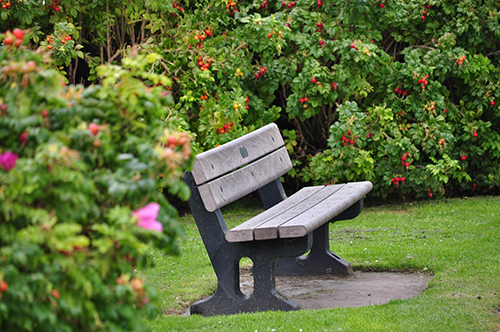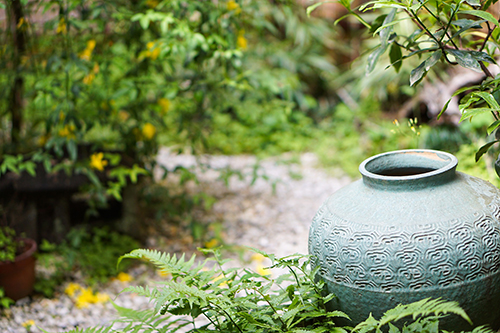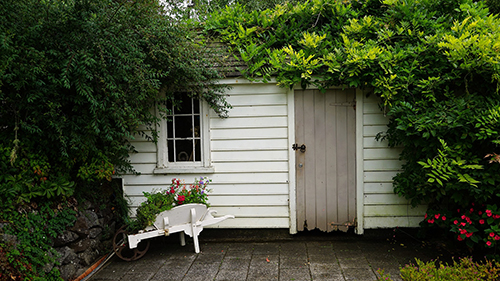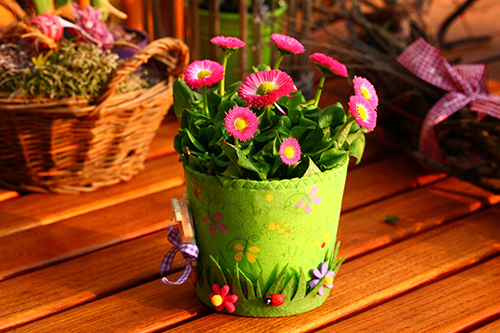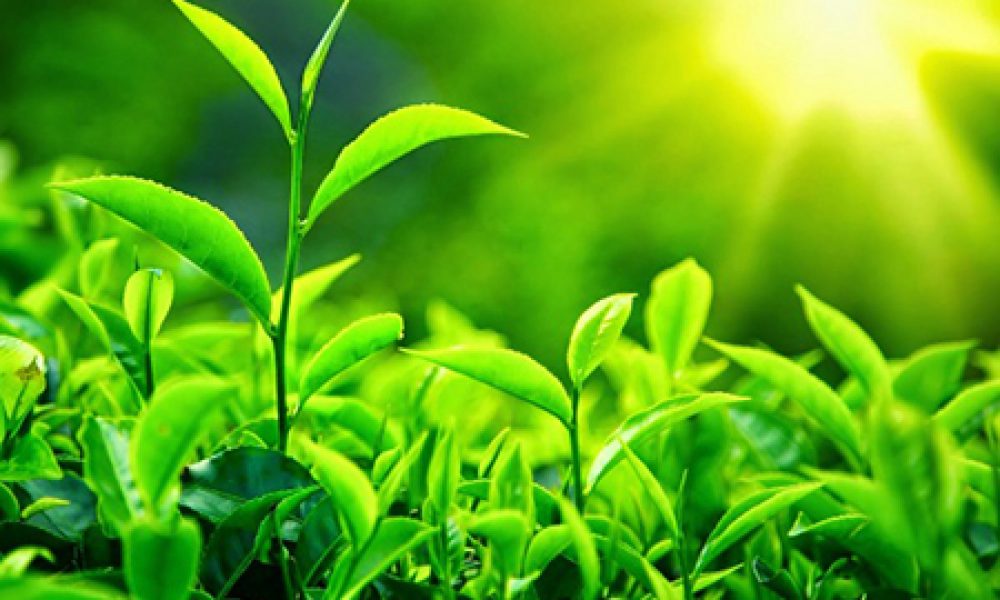
Vitad-Agri Institute Trade Union Congress
Vitad-Agri Institute Trade Union Congress
Vitad-Agri Institute Trade Union Congress: Strive to be worthy of representing workers at the Institute
Bright 11/7 At Hanoi, The Vietnam Institute of Technology Application and Agricultural Development organized the term Trade Union Congress 2023-2028.

From right to left: Mr. Do Tien Dung, Vice President in charge of Vietnam Union of Agriculture and Rural Development; Mr. Tran Dang Quy, Former Vice Chairman of Vietnam Union of Agriculture and Rural Development; Ms. Nguyen Thi Phuong Chi, Deputy Head of the Inspection Organizing Committee of the Vietnam Union of Agriculture and Rural Development
Attend the Trade Union Congress term 2023-2028 of the Vietnam Institute of Agricultural Technology Application and Development (Vitad-Agri) belongs to the Vietnam Organic Agriculture Association: Mr. Do Tien Dung, Vice President in charge of Vietnam Union of Agriculture and Rural Development; Ms. Nguyen Thi Phuong Chi, Deputy Head of the Inspection Organizing Committee of the Vietnam Union of Agriculture and Rural Development; Mr. Tran Dang Quy, Former Vice Chairman of Vietnam Union of Agriculture and Rural Development.
Also attending the Congress were leaders of units including:: Mr. Pham Dinh Nam, Director of the Vitad-Agri Institute; Mr. Le Huu Dien, Chairman of the Board of Directors of Duc Hau Cooperative Luu Quang; Mr. Phuc Tien Manh, Deputy Director of Construction Joint Stock Company & Minh Phuong PTTM and delegates are staff of Vitad-Agri Institute, members of the units, HTX.

The Presidium runs the Congress: Mr. Pham Dinh Nam, Director of Vitad-Agri Institute (between); Pham Van Vi, Member of the Trade Union Executive Committee for the term 2018-2023 (Both the coffee replanting program as well as the processes); Phuc Tien Manh, Deputy Director of Construction Joint Stock Company & Minh Phuong PTTM (left)
After the opening speech of the Congress, Mr. Pham Dinh Nam, Director of Vitad-Agri Institute presented a summary of Trade Union activities during his term 2018-2023.
The term summary report affirmed: The Vitad-Agri Institute Trade Union has performed well its role and functions in supervising the implementation of the regime., policy, Paying attention to the material and spiritual life of workers throughout the Institute.
Actively respond to emulation movements, Campaigns are under the supervision and direction of superior trade unions and Party committees. The Trade Union Executive Committee has promoted its responsible role, along with the efforts of the Trade Union members, actively contributing to the successful completion of tasks in all fields..
However, The Vitad-Agri Institute union still has some limitations, defects such as: Executive Board members work part-time, so they do not have much time to deploy trade union activities – The Trade Union Executive Committee members are still confused, Ineffective implementation of movements launched by trade unions…
In the direction section, new term tasks, The report sets out the specific goals of the Institute's Trade Union for its term 2023-2028: Grassroots unions achieve strength every year; Strive during the term to be awarded a certificate of merit by the Industry Union; 100% Trade union officials participate in training classes, Skills training for trade union activities organized by the industry trade union; Develop 05 new union member; 100% Employees can participate and pay social insurance, Health insurance, Full unemployment insurance. Average income per capita next year is higher than last year; At least every year, workers have a health check-up 1 times; 100% Employees are informed about new policies, be given the opportunity to improve professional qualifications; Every year, organize well-organized conferences and sign Collective Labor Agreements with employees; Organized at least every year 1 emulation movement…

Mr. Do Tien Dung, Vice President in charge of Vietnam Union of Agriculture and Rural Development gave a directive speech at the Congress
Giving a directive speech at the Congress, Mr. Do Tien Dung, Vice President in charge of the Vietnam Agriculture and Rural Development Trade Union highly appreciated the results the Vitad-Agri Institute Trade Union has achieved in the past term., At the same time, point out the limitations, existing problems that need to be overcome in the new term.

Mr. Le Huu Dien, Chairman of the Board of Directors of Duc Hau Cooperative Luu Quang (left) delivered a speech at the Congress
The Congress elected the Executive Committee of the Vitad-Agri Institute Trade Union for a term 2023-2028 including 3 people: Mr. Pham Van Vi (Project leader), Ms. Nguyen Thi Bich Hong (Administrative administration), Mr. Luong Viet Hung (Head of IT Department) with a high vote of confidence.

Vitad-Agri Institute Trade Union Executive Committee term 2023-2028 introduced the Congress.
Vitad-Agri Institute Trade Union Executive Committee term 2023-2028 elected Mr. Pham Van Vi as Chairman; 2 The Executive Committee members are Ms. Nguyen Thi Bich Hong and Mr. Luong Viet Hung.
Speaking after being elected as Chairman of the Vitad-Agri Institute Trade Union for a term 2023-2028, Mr. Pham Van Vi expressed: With the confidence of the Congress, we elected to join the Executive Committee of Vitad-Agri Trade Union, term 2023 – 2028, On behalf of the new Executive Board, I promise to never stop learning, strive to successfully complete the tasks assigned by the Congress. The new Executive Board looks forward to receiving guidance, tutorial, help from the Industry Trade Union Standing Committee; attention, support, create favorable conditions for the Board of Directors and the support of all Trade Union members of Vitad-Agri Institute so that we can perform our duties and responsibilities well., worthy of being the representative for workers at the Institute".
The Congress also unanimously elected Mr. Le Huu Dien, Chairman of the Board of Directors of Duc Hau Cooperative Luu Quang represented the Vitad-Agri Institute Trade Union to attend the Agriculture and Rural Development Trade Union Congress in September. 10 come here.
Some notable images of the Congress:

Mr. Do Tien Dung, Vice President in charge of Vietnam Union of Agriculture and Rural Development (blue shirt) Giving flowers to congratulate the Executive Committee of the Trade Union of Vitad-Agri Institute for the term 2023-2028

Director of the Vitad-Agri Institute, Comrade Pham Dinh Nam took a photo to congratulate the Trade Union Executive Committee for his term 2023-2028

Comrade Le Huu Dien, Chairman of the Board of Directors of Duc Hau Cooperative Luu Quang presented flowers to congratulate the Congress



Delegates attending the Congress took commemorative photos
invest in building a local vegetable processing facility
Development of organic agriculture period 2020-2030
Day 2/11, Ministry of Agriculture and Rural Development (NN&PTNT) Organizing a conference to implement the Project for the development of organic agriculture in the fifth phase 2020-2030
Phase organic agriculture development scheme 2020 – 2030 by the Ministry of Agriculture&Rural Development submitted to the Government and recently approved is derived from practice, general methods and directions of the Scheme on agricultural restructuring towards increasing added value and developing sustainably. The project aims to implement the national target programs and promote the potential strengths of organic agriculture in regions and localities., contribute to positioning and enhancing the brand of Vietnamese agricultural products on the world agricultural map; to make Vietnam become a country with an organic agricultural production level equal to that of advanced countries in the world.
This is also the directive throughout the Central, Government and Prime Minister over the years. And the agricultural sector is actively implementing this policy. Besides that, Organic agriculture is a growing trend and will grow rapidly in the coming time by ensuring the provision of better products for human health and society..
According to the Ministry of Agriculture&PTNT, up to now, The area of organic cultivation in Vietnam increased from 53.350 ha years 2016 up approx 237.693 ha years 2019. The whole country has 46/63 the province is implementing and having an organic production movement. The number of farmers involved in organic production is 17.168 people.
The number of organic production firms is 97 enterprise; Join export is 60 enterprises with a turnover of approx 335 million USD / year. Vietnamese organic agricultural products are consumed domestically and are now exported 180 countries around the world, including the US, ME, China, Japan, Virtue, Brother, Korea, from, Singapore, France, Belgium, Netherlands, Italy… are the largest consumer markets for organic agricultural products in the world.
Deputy Minister of Agriculture&Rural Development Tran Thanh Nam said, Conferences aimed at dissemination, thoroughly grasp the main contents of the organic agriculture development project in the period 2020 – 2030 help management units of the ministry, localities, industry associations, producers and businesses understand the perspective of development, targets, tasks and solutions of the State for organic agricultural development. Thereby deploying to develop a plan to implement the tasks of the Project in accordance with the functions of the unit and actual local conditions..
According to Deputy Minister Tran Thanh Nam, Currently, many cooperatives and households are implementing organic agricultural models. But let them understand how organic agriculture is, Knowledge is lacking in how standards are.
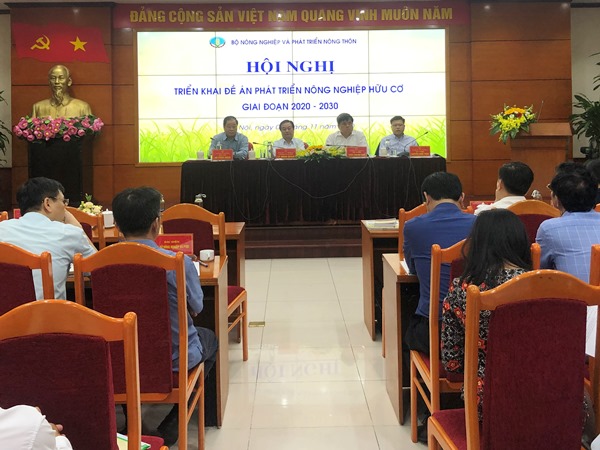
Ministry of Agriculture&Rural Development has advised the Government to promulgate the Scheme on development of organic agriculture in the period 2020-2030 in order to step by step turn Vietnam into a country with an organic agricultural production level equal to that of advanced countries. To do this, according to Deputy Minister Tran Thanh Nam, next to the area to continue to be intensive, Increasing productivity to ensure food security, each locality will base on the area of land, as well as key agricultural commodities to direct the development of organic agriculture. Other way, Provinces also need to focus on training and improving production capacity so that cooperatives and households implementing organic agriculture models understand how organic agriculture is., standards and regulations like. Therefore, after this batch, The staff will organize training courses to improve the qualifications of managers at all levels from the department, organic standards at the local level and producer, especially the Vietnamese Standard 11041:2017 – The national standard for organic agriculture.
In addition, the Ministry of Agriculture and Rural Development will guide the production processes towards organic agriculture and organic agriculture standards to each locality.. Because, The investment process to convert from conventional production to organic farming is very expensive, Not anywhere can do it, should be implemented step by step.
Another issue emphasized by Deputy Minister Tran Thanh Nam, That is how to coordinate with industries in the management of organic agricultural products when placing labels on the market., quality. “Just past, We tried to find out some places that showed that there were items that were labeled organic but not certified organic agriculture.. This is a current problem that needs to be rectified. This is not the only one of MARD&Rural development can do that requires branches, especially market regulators are involved in coordination”.
So, next time, The Department will provide legal support, facilitate to help domestic organic certification bodies to improve their capacity while also orienting them to link with international certification bodies to step by step enhance their position., level, The capacity of domestic certification bodies is equal to that of other countries in the region and in the world.
Source: Ministry of Agriculture&PTNT
Minimize the impact of Covid-19 on trade and food market
This is a joint statement of the General Director of the United Nations (FAO) QU Dongyu, World Health Organization (WHO) Tedros Adhanom Ghebreyesus and the World Trade Organization (WTO) Roberto Azevedo.

Millions of people around the world depend on international trade for food security and livelihoods. As countries enact measures to contain the growing COVID-19 pandemic, Care must be taken to minimize potential impacts on food supplies or unintended consequences on global food security and trade..
When taking action to protect the health and well-being of people, Countries need to ensure that any trade-related measures do not disrupt food supply chains. Disruptions include hindering the movement of agricultural and food workers, Extended border delays for goods leading to food spoilage and increased food waste. Food trade restrictions can also be linked to irrational concerns about food safety. If such a scenario occurs, it will disrupt the food supply chain, with particularly pronounced consequences for the vulnerable and those who do not have enough to eat.
Uncertainty about food availability could trigger a wave of export restrictions, creating a shortage in the global market. Such reactions can alter the balance of food supply and demand, leading to price increases and price fluctuations. We have learned from previous crises that such measures are particularly damaging to low-income countries, food shortages and the efforts of humanitarian organizations to purchase food for those in urgent need.
We must prevent the repetition of such damaging measures. It's times like these, International cooperation becomes more important than ever. Between social distancing because of COVID-19, Every effort must be made to ensure trading is as free as possible, especially avoid food shortages. The same, similar, It is vital that food manufacturers and workers in processing and retail are protected to minimize the spread of disease and maintain the food supply chain.. Consumers, especially the most vulnerable, Access to food in the community must be maintained according to strict safety requirements.
We must also ensure that information on food-related trade measures is provided, production level, consumption and reserve supply, as well as the price of food that is available to everyone during the period of social distancing. This reduces concerns and enables manufacturers, consumers and merchants make informed decisions. Above all, This helps limit 'panic buying' and hoarding of food and other essential items.
Now is the time to show solidarity, act responsibly and adhere to our shared goal of enhancing food security, food safety and nutrition, improve the general well-being of all people around the world. We must ensure that our response to COVID-19 does not unintentionally create unnecessary shortages of essential items and worsen hunger and malnutrition.
(Source: Ministry of Agriculture&PTNT)

